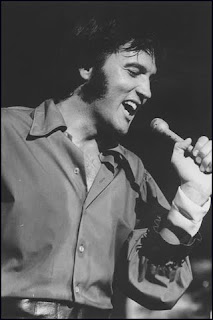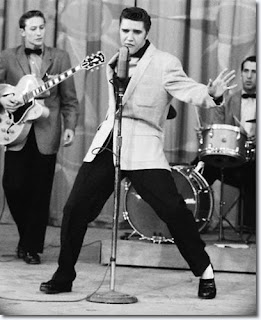
Helloo0O Ladies and Gentlemen!
Welcome back to Graceland Ontario, your one stop location for learning the success lessons of the King of Rock ‘n’ Roll so they can improve your life. Today we’ll be talking about great stars flowing together and what this means about your friends. It’s a new take on an old subject.
I was watching my copy of That’s the Way it Is, Elvis’s 1970 concert documentary, the other day. A couple times during it we see the King talking with another king, Cary Grant, one of the most legendary actors to walk through Hollywood’s gates. Not long after I saw an old Grant classic from 1951, People Will Talk, where he plays a Doctor who falls in love with a patient. And boy is Grant good. So good he won an honorary Oscar also in 1970, years after his retirement, for the full body of his screen-work.
So, I began to wonder, “Could it be mere coincidence that one of history’s greatest actors was with one of history’s greatest singers in the same film?” I mean, Elvis and Grant even look similar.
Well, to a degree. I’m sure Elvis’s manager, the Colonel, did all he could to get Grant in Elvis’s Return-to-Stage movie. But still, the meeting of the two greats reminded me of something I read long ago…
It said you could determine a person’s income pretty reliably from the mean average of that person’s five closest friends. You add up their incomes, divide them by five and there you go. In short, if you associate with the rich, you’ll be rich. You associate with the poor, you’ll be poor. And though money is the basis of that hypothesis, I would figure success and fame follow the same metre. When you walk on the same level as famous people you feel similar to how they feel, you’ll act like your famous and, with your new confidence, you’ll earn the fame you never had before. Grant and Elvis being so close together (along with others, like Sammy Davis Jr.) further confirms it.
The principal is those you mingle with will elevate or suppress you, inspire or knock you down, slim you up or fatten you out. Like the old story of crabs in a bucket, when one tries to escape, the others pull them back again to their level. People do the same. They get jealous when others do things they can’t and they retaliate with spite. The difference is they can also pull you out of the bucket when you’re the only one in it. It all depends who your friends are.
So, the point is watch who you associate with. Your friends can also be your enemies when they don’t have the same success mindset you crave. Without knowing it, they’ll drag you down. When your friends are achievers, they’ll pull you up, too. Maybe it was only a coincidence Cary Grant and Elvis ended up in the same movie. But it’s no coincidence how − they performed at a high level and they got there (and stayed there) because of the people they associated with on a day-to-day basis. There’s no way they could have won otherwise, with their best friends beating them down − neither can you.
Elvis’s Lessons:
Elvis and Grant were in That’s the Way it Is because of an achievement mindset. They maintained this from their friends. In like, for you to keep this positive mindset, you need positive-minded friends, too. Otherwise, your friends will undermine your attempts to be successful. Looks like your parents were right − you do need to watch who you hangout with.
P.S. Remember to leave a comment - I'd love to hear what you think.
P.P.S. If you're interested in seeing Cary Grant picking up that 1970 honorary he won, here's a Youtube clip of him receiving it.P.P.P.S. If this post interests you, so might these ones:


















